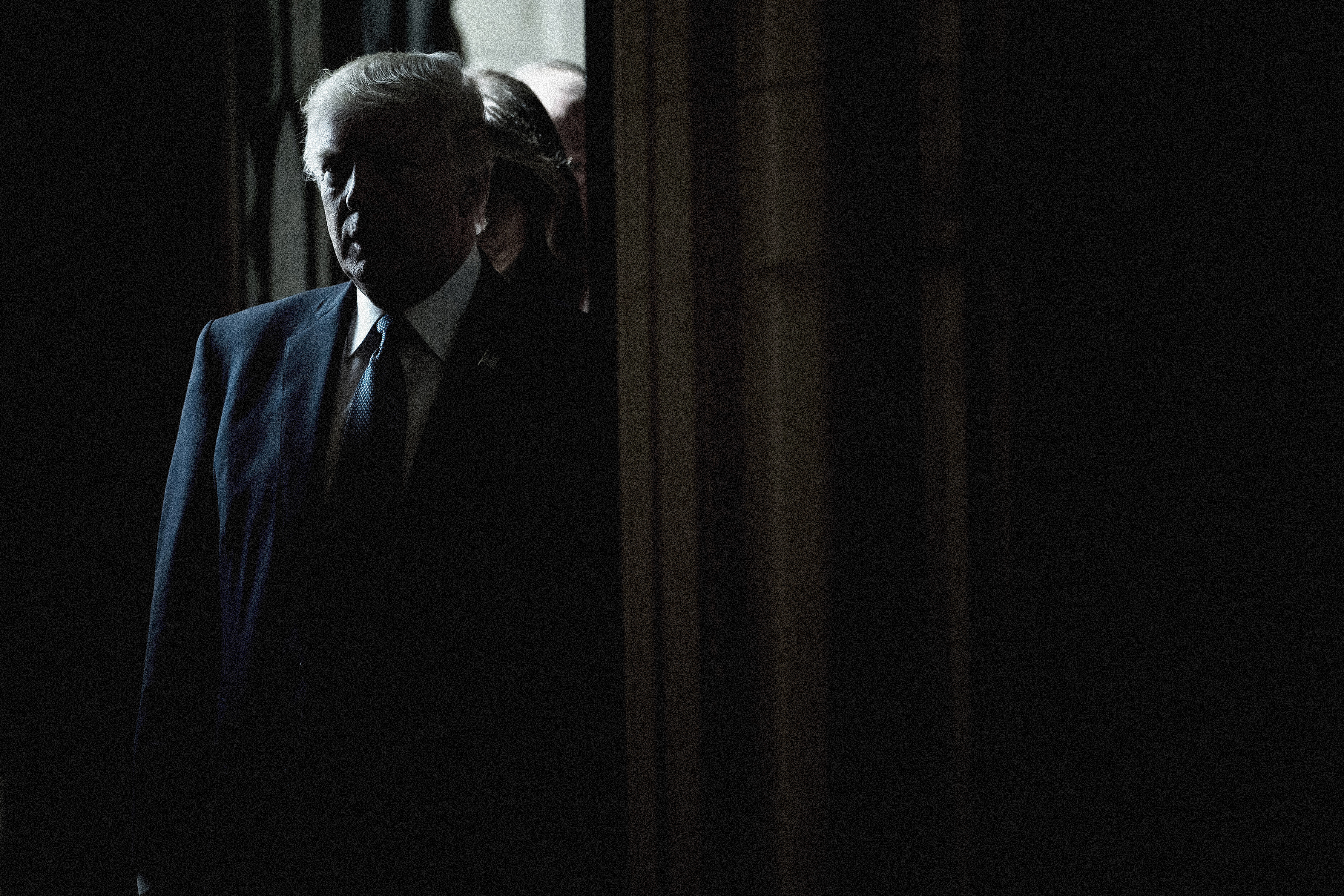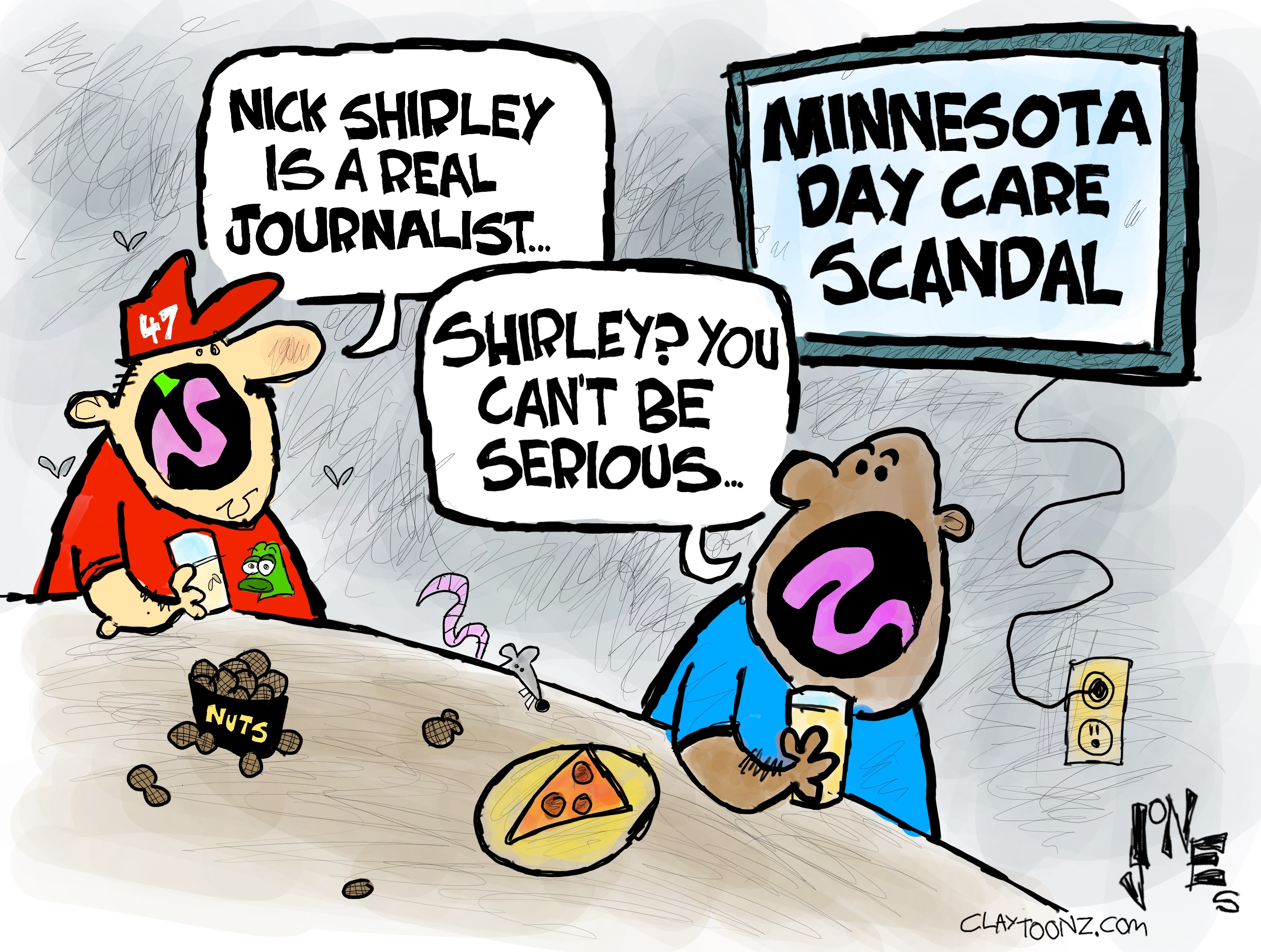The mind-boggling corruption of Trump Inc.
A week in the most crooked administration in history


Another week in the Donald Trump presidency, another handful of days so stuffed full of sordid and highly complicated stories that even journalists have trouble keeping track of what's going on.
But the thread tying all the latest news together — from Trump lawyer Michael Cohen's sundry exploits, to Trump's ongoing presidential profiteering, to the Russia investigation — is corruption. The Trump administration will surely go down as one of the most — if not the most — rotten in American history.
Let's roll this most recent bit of tape. Ronan Farrow, who has become one of the signature investigative reporters of the Trump presidency, revealed at The New Yorker why somebody leaked the notorious financial reports of Michael Cohen showing that he had been given fantastically large sums of money from AT&T, Novartis, and a Russian oligarch-connected LLC. This information came from a "suspicious activity report" (SAR), which is something a bank files with the Treasury Department when they suspect something fishy is going on with a customer.
The Week
Escape your echo chamber. Get the facts behind the news, plus analysis from multiple perspectives.

Sign up for The Week's Free Newsletters
From our morning news briefing to a weekly Good News Newsletter, get the best of The Week delivered directly to your inbox.
From our morning news briefing to a weekly Good News Newsletter, get the best of The Week delivered directly to your inbox.
It turns out the source is a law enforcement official, and he released the SAR after he discovered that two more SARs detailing $3 million of additional similar transactions had somehow vanished from the Treasury Department's database. The source told Farrow that he feared that someone within Treasury was withholding the documents for political reasons, and thus released the one he had.
The precise meaning of this revelation is as yet unclear. But let me suggest a reasonable tentative conclusion: corruption. AT&T and Novartis have already admitted they were paying Cohen personally for "insights" into the Trump administration, particularly regarding, respectively, a huge proposed merger with Time Warner and health-care policy. Given that Cohen has zero experience with antitrust or health-care law and the scale of the secret payments, it's nearly beyond question they were really hoping to purchase political influence. And as for the disappearance of the SARs, Trump already straight-up admitted on national television that he fired then-FBI Director James Comey to stifle the Russia investigation, so obstruction of justice is clearly not a charge the president fears.
Obviously Cohen is legally innocent until proven guilty. But let's have a whisper of common sense here. It's not exactly a stretch to figure that the other SARs probably contain something similar to the first one, or that someone very well could be attempting to quash the Russia investigation, as Trump has already tried to do. (Oh, and a Qatari investor recently alleged that Cohen hit him up for a $1 million bribe in December 2016.)
That brings me to Trump's bizarre about-face on the Chinese phone manufacturer ZTE, in which he promised to help restore the company's jobs after being hit with U.S. fines and sanctions. Are we really to believe that this has nothing to do with China loaning $500 million to a huge Trump-branded development in Indonesia days beforehand? It simply beggars belief — indeed, there is practically no other comprehensible explanation.
A free daily email with the biggest news stories of the day – and the best features from TheWeek.com
Then there is the Russia investigation. As David Klion writes, the thing to remember about "Russiagate" (an unfortunate appellation, but one which seems to have stuck) is that Russia as such is only an incidental part of the story. Nearly all the major players are American, and if Russian efforts to influence the election did actually succeed to some degree, it's only because America's democratic institutions are rotten nearly to the core. Nations meddle in each other's elections all the time, for good reasons and bad. The United States has done it dozens of times, and often immensely more aggressively than anything Vladimir Putin allegedly did in 2016. The remarkable thing was that such relatively moderate and cheap efforts actually made any sort of difference — and in such a rich and powerful nation.
One important reason why Trump was able to become president is because his business career was not derailed at any of the several points in which he allegedly committed crimes. He could have been finished on one of the dozen-plus occasions he was credibly accused of sexual harassment or assault, or when he illegally discriminated against black tenants in his properties, or for the Trump University scam, or for an illegal loan to one of his casinos, or about 10 other things. But instead, he was actually coddled and lifted up by the New York establishment.
And he was far from alone. It turns out that when you stop enforcing the law against rich people, a seething plasma of corruption tends to engulf the national political system. Perhaps in the future we can start applying laws to everyone, even the wealthy and powerful.
Ryan Cooper is a national correspondent at TheWeek.com. His work has appeared in the Washington Monthly, The New Republic, and the Washington Post.
-
 The ultimate films of 2025 by genre
The ultimate films of 2025 by genreThe Week Recommends From comedies to thrillers, documentaries to animations, 2025 featured some unforgettable film moments
-
 Political cartoons for January 3
Political cartoons for January 3Cartoons Saturday's political cartoons include citizen journalists, self-reflective AI, and Donald Trump's transparency
-
 Into the Woods: a ‘hypnotic’ production
Into the Woods: a ‘hypnotic’ productionThe Week Recommends Jordan Fein’s revival of the much-loved Stephen Sondheim musical is ‘sharp, propulsive and often very funny’
-
 Bari Weiss’ ‘60 Minutes’ scandal is about more than one report
Bari Weiss’ ‘60 Minutes’ scandal is about more than one reportIN THE SPOTLIGHT By blocking an approved segment on a controversial prison holding US deportees in El Salvador, the editor-in-chief of CBS News has become the main story
-
 Has Zohran Mamdani shown the Democrats how to win again?
Has Zohran Mamdani shown the Democrats how to win again?Today’s Big Question New York City mayoral election touted as victory for left-wing populists but moderate centrist wins elsewhere present more complex path for Democratic Party
-
 Millions turn out for anti-Trump ‘No Kings’ rallies
Millions turn out for anti-Trump ‘No Kings’ ralliesSpeed Read An estimated 7 million people participated, 2 million more than at the first ‘No Kings’ protest in June
-
 Ghislaine Maxwell: angling for a Trump pardon
Ghislaine Maxwell: angling for a Trump pardonTalking Point Convicted sex trafficker's testimony could shed new light on president's links to Jeffrey Epstein
-
 The last words and final moments of 40 presidents
The last words and final moments of 40 presidentsThe Explainer Some are eloquent quotes worthy of the holders of the highest office in the nation, and others... aren't
-
 The JFK files: the truth at last?
The JFK files: the truth at last?In The Spotlight More than 64,000 previously classified documents relating the 1963 assassination of John F. Kennedy have been released by the Trump administration
-
 'Seriously, not literally': how should the world take Donald Trump?
'Seriously, not literally': how should the world take Donald Trump?Today's big question White House rhetoric and reality look likely to become increasingly blurred
-
 Will Trump's 'madman' strategy pay off?
Will Trump's 'madman' strategy pay off?Today's Big Question Incoming US president likes to seem unpredictable but, this time round, world leaders could be wise to his playbook
